Excellence in Culture and Community recognised in 2019 President’s Awards
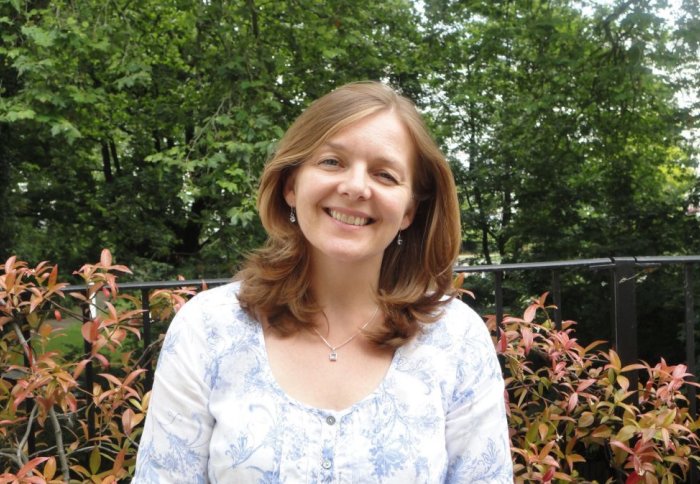
Tracy Halsey, Head of the Early Years Education Centre, is one of the award winners
From volunteering at the College to facilitating the integration of children with special needs in nursery, we celebrate the winners' achievements
The President's Awards for Excellence in Culture and Community, conferred for the first time in 2019, recognise members of staff who have made outstanding contributions over the last year in three different categories: leadership; equality, diversity and inclusion; and collaboration and communication.
Louise Lindsay, Director of Human Resources, said: “I was very pleased to be involved in the selection of the President’s awards for excellence in culture and community. We received some excellent nominations and it was wonderful to read the many citations explaining how people were supporting their colleagues and the actions they were taking to ensure the College is a positive and inclusive place to work and learn.”
Below, we talk to some of the winners.
Professor Nicholas Harrison: “Encouraging a mixture of different approaches leads to more creative, blue sky research.”
Nic, co-director of the Institute of Molecular Science and Engineering and head of the Computational Materials Science Group in the Department of Chemistry, has won a President’s Award for Excellence in Equality, Diversity and Inclusion. He received the award in recognition of his work in creating an open and inclusive working environment for staff, students, and researchers who collaborate with his group.
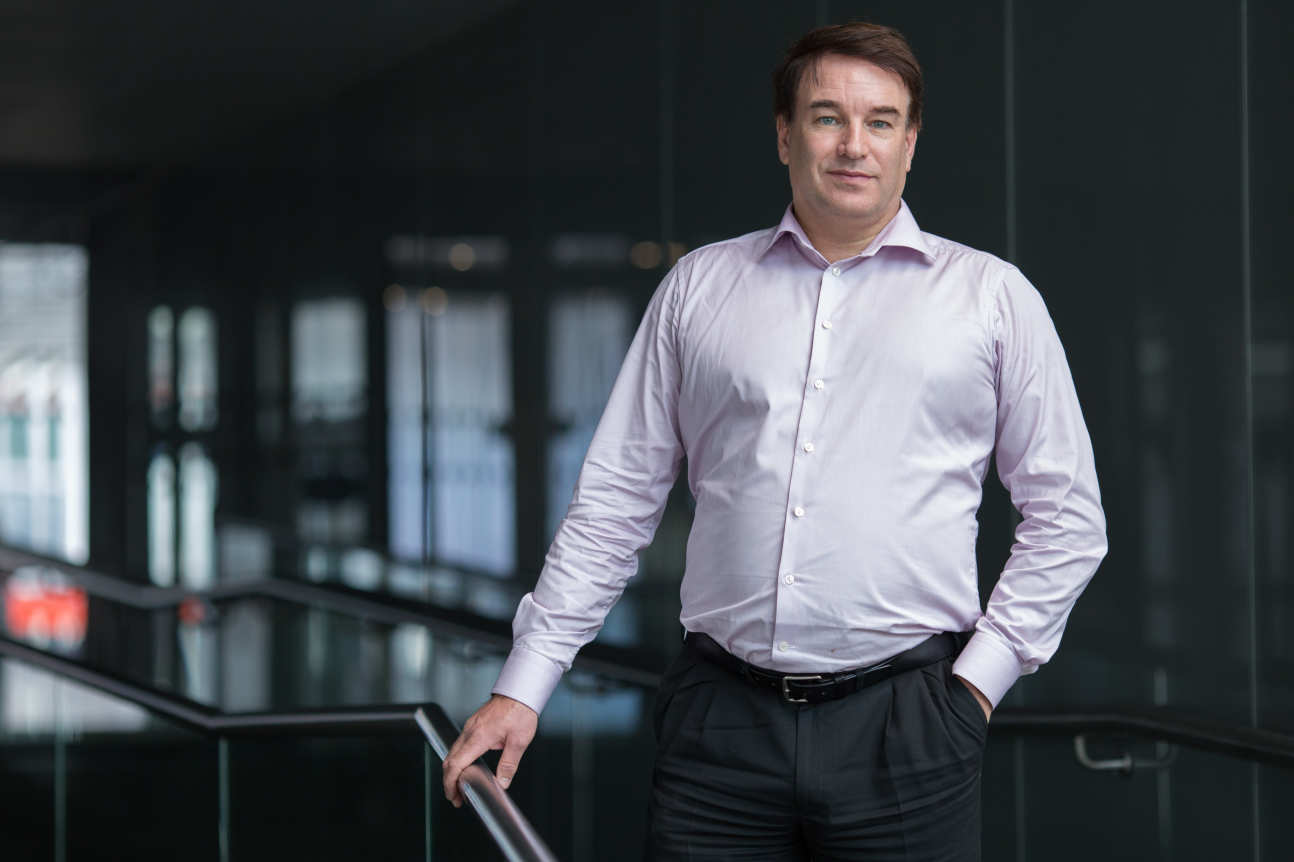 “I have always been passionate about equality and diversity, coming from a family which had that ethos. My drive to promote these values in academia stems from a desire to build highly innovative research teams, having experienced that recognising and encouraging a mixture of different approaches leads to more creative, blue sky research,” Nic said.
“I have always been passionate about equality and diversity, coming from a family which had that ethos. My drive to promote these values in academia stems from a desire to build highly innovative research teams, having experienced that recognising and encouraging a mixture of different approaches leads to more creative, blue sky research,” Nic said.
We need to work more on recognising the difference between cultures, ethnicities and genders as a positive force Nic Harrison
Reflecting on efficient ways to build an inclusive culture, he highlighted the importance of “creating an atmosphere of curiosity, active listening and patience, in which everyone recognises each other’s unique talents,” as well as more concrete measures, such as allowing for flexible working patterns and not scheduling meetings on evenings to include colleagues with families.
Nic also introduced changes to the way students are examined: “Sitting at a desk, under intense pressure, doesn’t suit everybody. Instead, on one of our courses, we now examine through symposium, allowing students to assess each other. It is astonishing how much they agree on what makes a good talk. While this can also be stressful to some of them, it helps to even the playing field and gives people a chance to express themselves.”
Commenting on his hopes for the future of equality and diversity in STEM, Nic added: “The situation now is thankfully very different to when I started my career. However, although we are getting many of the processes right, we need to work more on recognising the difference between cultures, ethnicities and genders as a positive force. We could also do much more of teaching through action and examining through performance in addition to some of the more traditional approaches.”
Margaret Collett and Gareth Oliver: Going above and beyond in volunteering at the College
Gareth, Remote IT Support Engineer in ICT, and Margaret, Personal Assistant to Professor David Nutt and other academic staff in the Department of Medicine, have won a joint President’s Award for Excellence in Collaboration and Communication, in recognition of their active participation in the Public Engagement with Research volunteer programme. Both of them have volunteered for almost every shift in the academic year.
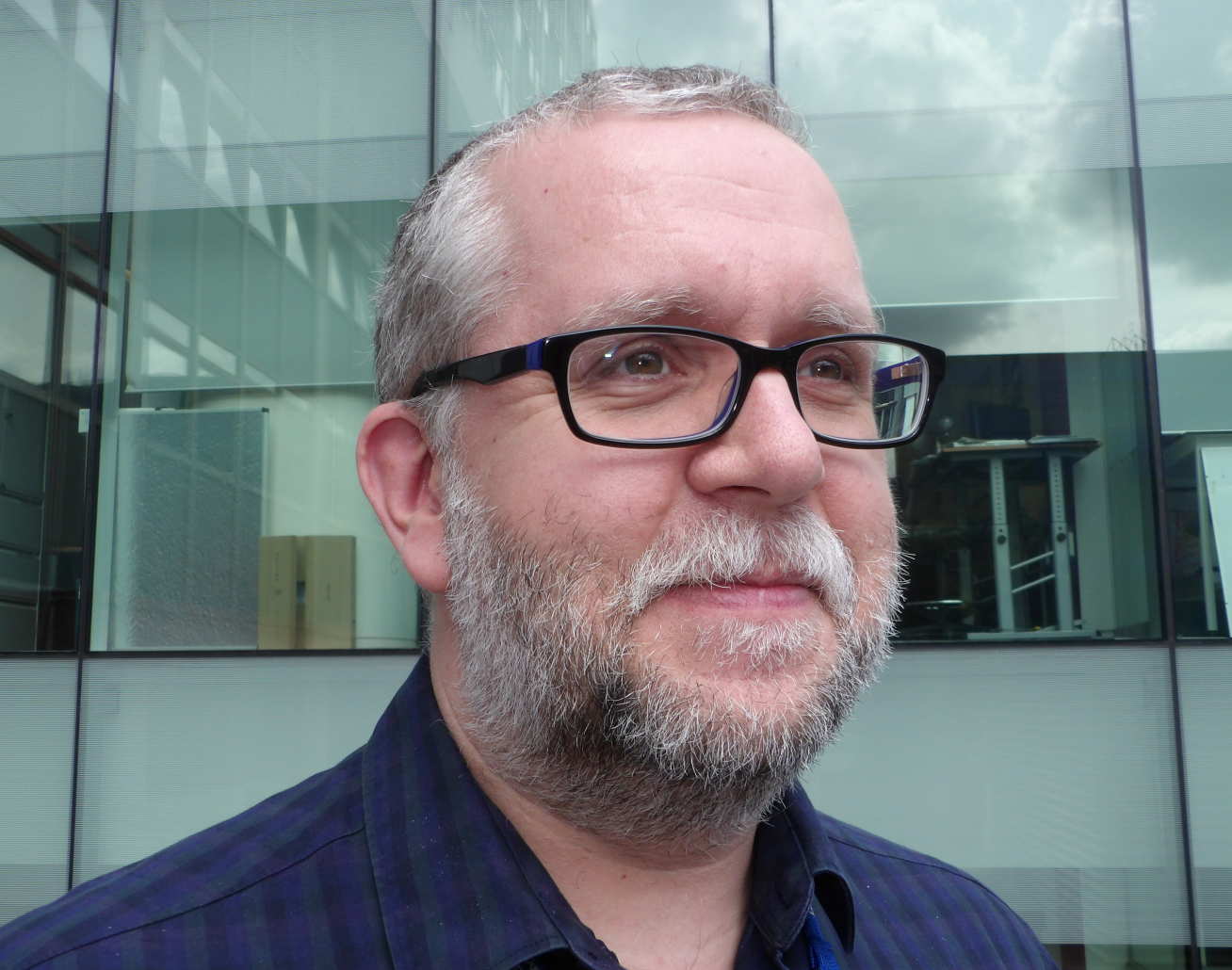
“I have been at the College for two years, since I came back to the UK after a long stint of volunteering in The Gambia,” explained Gareth. “Volunteer work has always been a part of my life. Previously, I had helped elderly people with computer skills and volunteered at cultural festivals.
“At the College, volunteering provides an opportunity for me to meet new people and talk to students, which I don’t often get to do in my job.”
Margaret has contributed to events from the Imperial Festival to the Community Arts and Science Mash Up in the Invention Rooms. She said: “Volunteering is an opportunity to obtain an insight into what else is taking place in the College and network with Imperial colleagues and students who you would not have come into contact with otherwise. I have thoroughly enjoyed every event I have participated in.”
Reflecting on the essential qualities that public engagement volunteers need to have, Gareth noted: “Possessing good people skills, being approachable and willing to answer questions are important. It is also helpful to have a bit of an understanding of the research being showcased at our events.”
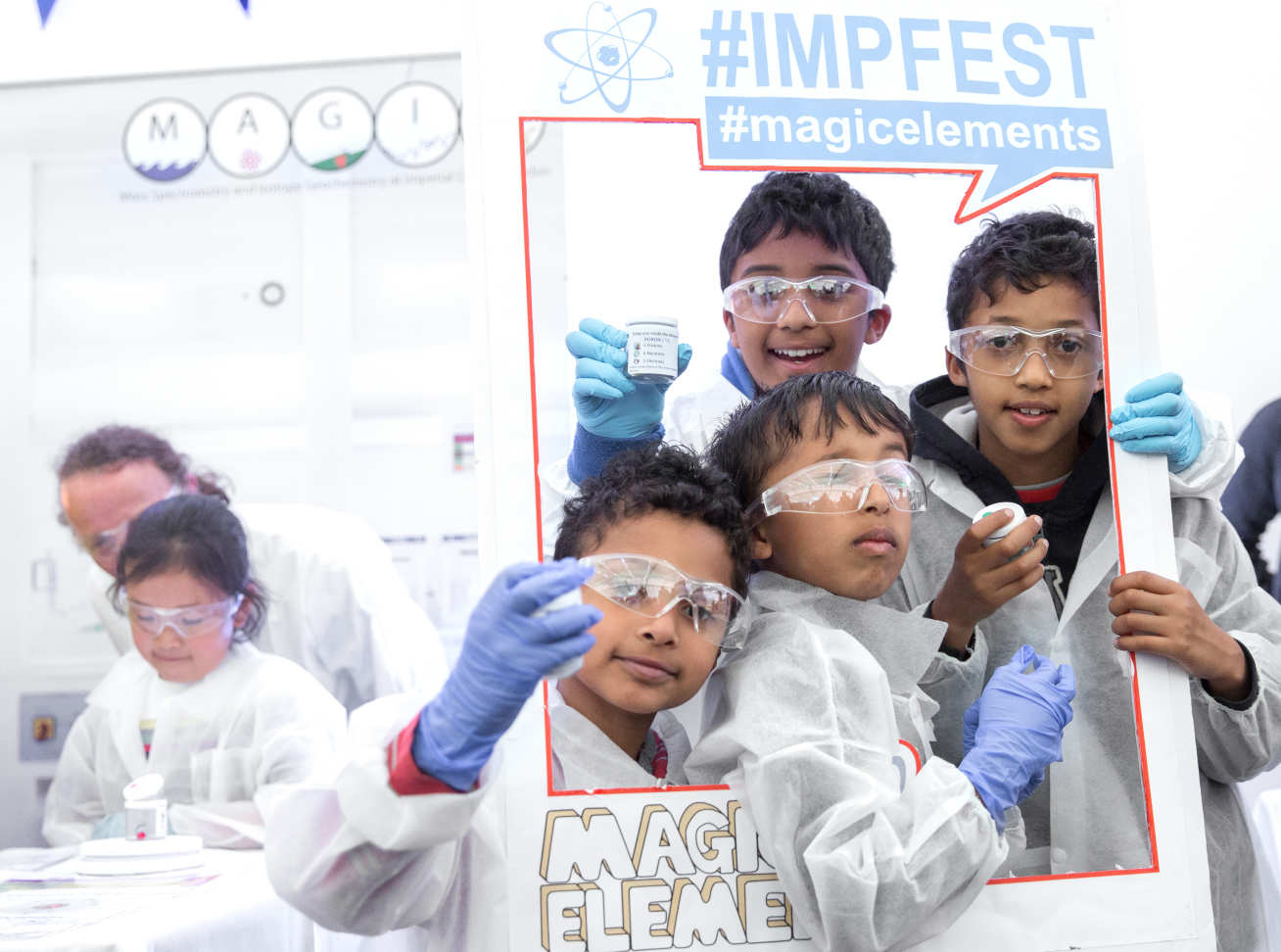
Gareth has recently taken on increased responsibility for facilitating Imperial Lates events. “I saw how busy the organisers were and I wanted to do more to support them,” he says. “I helped to run one of the talks, liaising with the presenter and AV staff to ensure its smooth running.”
Gareth is currently busy preparing for the Great Exhibition Road Festival, where he will be one of the tour leaders. He believes that while many people are naturally interested in volunteering, getting more senior managers on board would be key to increase staff engagement with the opportunities available. “Offering incentives, such as time off in lieu for those who help out at Welcome Week, has also led to success,” added Gareth.
Margaret will be retiring from the College later this month. She intends to keep volunteer work a part of her life in retirement by donating her time to foodbank charities – as well as occasionally helping out at College events.
Tracy Halsey: “We’re there with the families from the discovery that their child will have a special educational need.”
Tracy, Head of the Early Years Education Centre (EYEC), won a President’s Award with her team for Excellence in Equality, Diversity and Inclusion. Tracy joined the EYEC 30 years ago as an early years educator in baby rooms, going on to work with different age groups and progressing to become a manager. “It has not felt like the same job on any two days,” Tracy said. “We started with a group of 33 children when I first joined and now we have over 160 – the demand for the EYEC has grown year on year.”
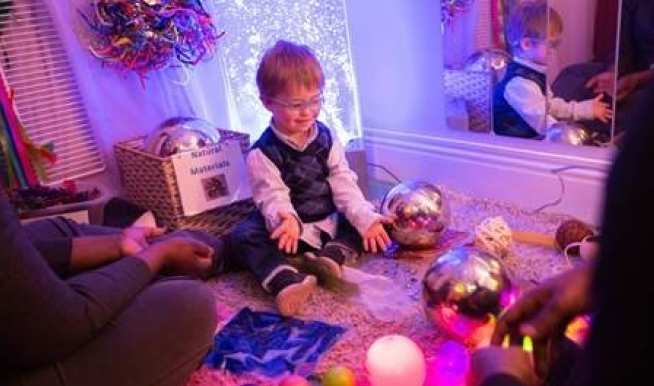 Santiago in the sensory room, created by Tracy and her colleagues in the EYEC
Santiago in the sensory room, created by Tracy and her colleagues in the EYECTracy’s team received their award nomination from the parents of Santiago, a child with Down syndrome and with very special and complex needs who attended the nursery. They praised the EYEC for providing a “wonderful learning environment,” enabling Santi to continue his education in a mainstream school.
“We’re there with the families from the discovery that their child will have a very special educational need, or a disability,” Tracy explained. “We have a Special Educational Needs and Disability (SEND) team, who have expertise in areas like Makaton, sign language, and working with children with autism, behavioural and physical difficulties.
“We also help our staff sign up to training courses and give them time out to do additional work to prepare lessons. Every child with a special educational need follows an Individual Education Plan (IEP), but being able to target 1-to-1 support is one of our biggest challenges.”
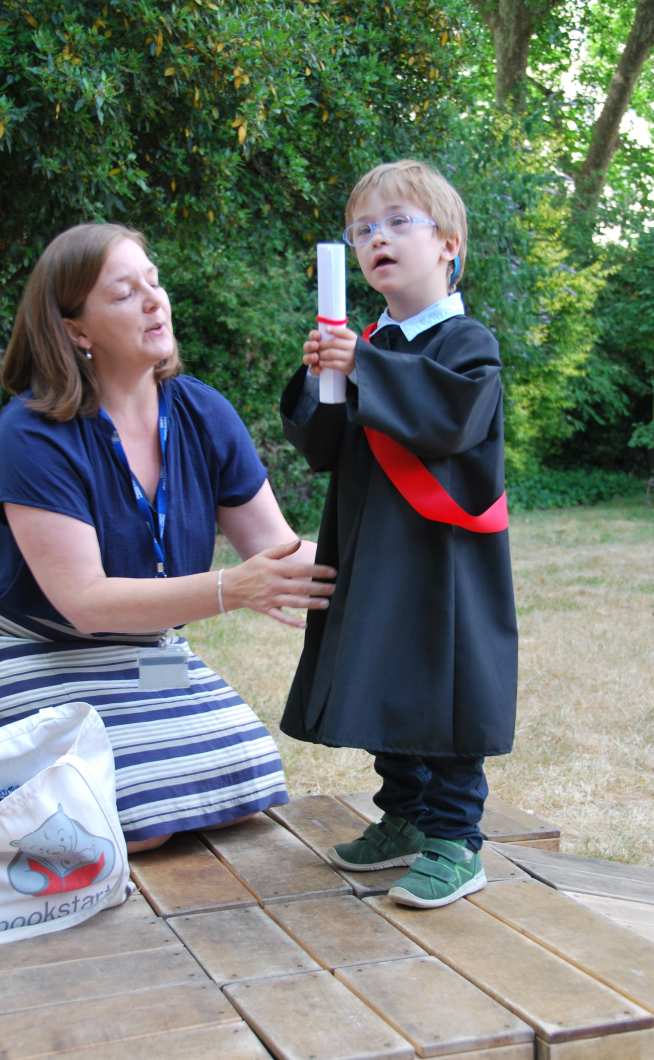
The EYEC team were commended in their nomination for celebrating equality, diversity and inclusion every day by teaching all children to be sociable and supportive of each other and holding events such as World Down Syndrome Day. For this day, the team decorated the entrance hall with an array of brightly coloured odd socks, pictures and books to raise awareness of the condition. The children later decided to learn a song played on the day and sing and sign it for Santiago at his nursery graduation.
As the EYEC is about to celebrate its 50th anniversary next year, Tracy shared her hopes for the future: “I would like to run support groups for the parents of children with special educational needs, who work at the College but are not necessarily a part of the EYEC community. My hope is that Imperial will continue to support us, so that we in turn can continue supporting the families and vison of Imperial.”
Article text (excluding photos or graphics) © Imperial College London.
Photos and graphics subject to third party copyright used with permission or © Imperial College London.
Reporter
Rozi Harsanyi
Human Resources Division